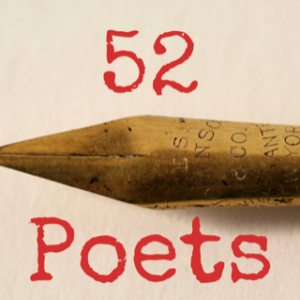
Emily Dickinson (1830-1886) is now one of America’s most read poets, but during her lifetime she was largely unknown and only a handful of her poems were published in newspapers. Since her death, her poetry (almost 1800 poems in total) has fascinated readers. Frequent themes are death and mortality, although there are many positive moments and interesting meditations on fame, considering her reclusive lifestyle and anonymity.
Dickinson’s poetry is idiosyncratic in its use of dashes and ellipses, its consideration of abstract and metaphysical concepts and refusal to ground her writing with simplistic meanings or definition. This style and approach can be confusing or liberating, depending on whether you prefer poetry that can be clearly interpreted or explorations of metaphysical ideas.
One of Dickinson’s best known poems is Because I Could Not Stop For Death, where the ghostlike speaker is taken on a journey by Death, with glances as the beauty of this life and the hope of immortality to come. We might also consider I Felt a Funeral, in my Brain, which seems to address another common theme, mental health. The ending of this poem is ambiguous, allowing the reader to explore meaning and intention. This leads me to Tell All the Truth but Tell it Slant, a call to be honest but also to be gentle rather than blunt with that truth. This advice could well apply to Dickinson’s own writing; she does not shy from difficult subjects but uses subtlety, metaphor and delicate language to deliver her thoughts and ideas with grace.
There are more up-beat poems. ‘Hope’ is the Thing with Feathers is another favourite, delightfully using the metaphor of a little bird keeping people warm. We sense playfulness in I’m Nobody! Who are You? , which seems to consider fame and anonymity, as well, perhaps, as exploring identity and existence in a more metaphysical way. My favourite among the fame poems, however, is Fame is a Bee. Only four lines, there is wisdom and truth in this poem which is as relevant today as when Dickinson wrote it, or perhaps even more so.
If you would like to explore Dickinson’s legacy further, there is a TV show which I haven’t watched and can’t comment on. I do want to watch A Quiet Passion, however, a British biopic written and directed by Terence Davies and starring Cynthia Dixon. Bear in mind that neither of these are documentaries, and any detailed description of such a reclusive life will necessarily include considerable assumption and inference.